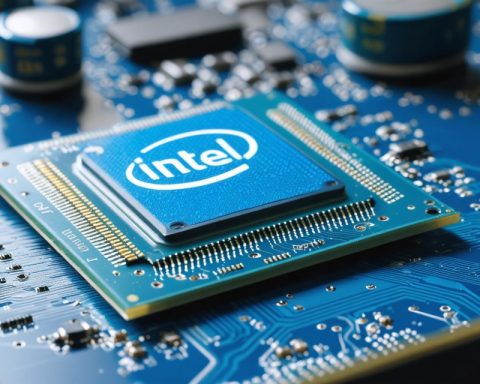Embracing AI in Shopping Habits
Recent findings reveal a remarkable shift in shopping behavior, with over 60% of Italians turning to generative artificial intelligence (AI) for product recommendations instead of traditional referrals. According to a Capgemini report titled “What Matters to Today’s Consumer,” this trend underscores a significant technological transformation in e-commerce.
The research, which surveyed 12,000 adults across 12 countries, including Italy, highlights a growing reliance on AI tools for online shopping. A notable 25% of Italian respondents reported using innovative shopping tools, with a further 32% planning to do so soon. These figures align closely with global trends, where 24% have already embraced such tools.
Trust in AI is notably high, as 57% of Italians have replaced conventional search engines with AI solutions for product suggestions. Additionally, 62% expressed a desire for more integrated AI chatbot interactions with companies, valuing personalized content and multichannel search results.
Interestingly, nearly 40% of global respondents, including a considerable number of Italians, believe that generative AI offers superior advice compared to in-store employees. The trend is particularly pronounced among Generation Z, who are increasingly utilizing AI for “social commerce.” In fact, 32% of Italians acknowledge discovering new products through online influencers, showcasing the powerful impact of social media in modern shopping practices.
Implications of AI in Shopping Habits
The shift towards generative AI in shopping habits carries significant ramifications for society, culture, and the global economy. As consumers increasingly rely on AI for product recommendations, traditional retail models face unprecedented challenges. This dependence indicates a move away from personal interactions and tangible experiences associated with brick-and-mortar stores, which could ultimately reshape retail ecosystems and drive businesses to augment their digital interfaces.
Moreover, the integration of AI can amplify existing societal trends regarding consumerism and personalization. With 62% of Italians craving more interactions with AI chatbots, the expectation for customized shopping experiences rises, pressing retailers to adopt advanced AI solutions that can cater to these desires. This shift not only influences buying behaviors but also alters how brands communicate and build relationships with consumers, as the line between human touch and technological mediation blurs.
From an environmental perspective, the rise of AI in shopping could enhance efficiency in inventory management and logistics, potentially reducing waste associated with overproduction. However, the demand for constant technological upgrades raises concerns about electronic waste and resource consumption.
In terms of long-term significance, these trends could pave the way for future innovations in e-commerce, shaping a landscape where AI not only facilitate transactions but also influence consumer values and sustainability efforts. As AI’s role grows, its impact on global commerce and individual shopping experiences will likely continue to evolve, posing further questions about the balance between technology and humanity in the retail sphere.
The Future of Shopping: How AI is Redefining Consumer Behavior
Embracing AI in Shopping Habits
Recent studies indicate a dramatic shift in consumer shopping habits globally, particularly in Italy, where over 60% of individuals are now utilizing generative artificial intelligence (AI) for product recommendations, moving away from traditional referral systems. This transition highlights the ongoing technological evolution that characterizes e-commerce today.
According to a comprehensive report by Capgemini titled “What Matters to Today’s Consumer,” which surveyed 12,000 adults across 12 countries, there is a notable increase in the reliance on AI tools for online shopping. Among Italian respondents, 25% reported using advanced shopping tools, with another 32% indicating intentions to adopt such technologies soon. This growth mirrors global trends, where 24% of consumers have stepped into this new shopping paradigm.
Key Insights and Trends
– Trust in AI Solutions: A significant 57% of Italians have opted for AI solutions over traditional search engines for product recommendations. This growing trust signals a shift in consumer thinking toward embracing advanced technology in their purchasing decisions.
– Desire for AI Integration: About 62% of shoppers desire a seamless experience where AI chatbots interact with them, providing personalized content and allowing for multichannel search results. This reflects an expectation for businesses to enhance customer engagement using AI.
– Generational Disparities: The inclination towards AI-driven tools is particularly prevalent among Generation Z, who are leading the charge in “social commerce.” Approximately 32% of Italians have discovered new products via online influencers, demonstrating the significant role of social media in shaping contemporary shopping behaviors.
Pros and Cons of AI in Shopping
Pros:
– Convenience in accessing personalized recommendations.
– Enhanced product discovery through AI-driven tools.
– Increased trust in AI over traditional retail advice.
Cons:
– Dependency on technology may overlook traditional shopping experiences.
– Concerns about data privacy and security with AI interactions.
– Potential loss of human elements in customer service.
Innovations and Features of AI Shopping Tools
AI shopping tools are becoming more sophisticated, featuring:
– Personalized Recommendations: Tailoring suggestions based on past purchases and preferences.
– Visual Search: Allowing shoppers to take pictures of products to find similar items online.
– Voice Shopping: Enabling consumers to make purchases through voice commands using smart devices.
Limitations and Security Aspects
While the benefits of AI in shopping are profound, limitations exist:
– Technical Literacy: Not all consumers may be comfortable using advanced AI tools.
– Accuracy of Recommendations: The efficacy of AI-driven suggestions can sometimes be inconsistent, reliant on sufficient user data.
– Security Risks: As AI technology evolves, so do the threats related to consumer data privacy and cybersecurity, making it crucial for companies to prioritize security measures.
Market Analysis and Future Predictions
As AI technology continues to integrate deeper into shopping experiences, projections suggest that:
– Increased AI Adoption: By 2025, the integration of AI in shopping could see a rise, with an estimated 50% of consumers using AI tools regularly.
– Shift in Retail Strategies: Retailers are likely to evolve their strategies to leverage AI for improved customer engagement and personalized marketing.
To stay at the forefront of this revolution, companies must continually adapt and innovate their approach to meet the expectations of tech-savvy consumers.
For more insights on the intersection of technology and consumer behavior, visit Capgemini.










